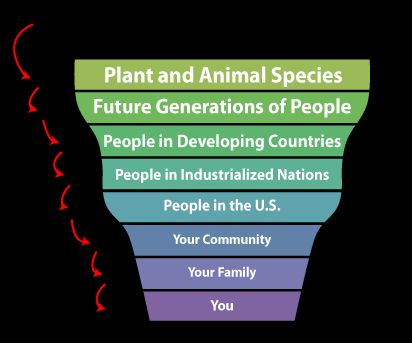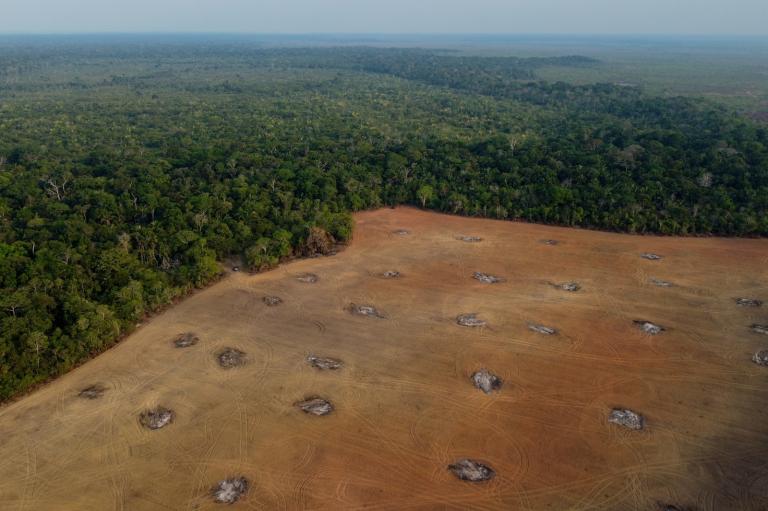538.com’s Nate Silver noted that a recent survey from the Yale Project on Climate Change and the George Mason University Center for Climate Change Communication “reveals part of the problem that advocates of more aggressive measures to curb climate change may be encountering as they seek to push forward initiatives like cap-and-trade”:
The survey, conducted by George Mason University’s Center for Climate Change Communication, reveals that Americans are concerned about global warming in the abstract — but perhaps only in the abstract. Just 32 percent of Americans think global warming will harm them “a great deal” or a “a moderate amount” personally. The further we get out from the individual, however, the more impactful people think climate change will tend to be: more impactful on their families than themselves; more impactful on their communities than their families; more impactful on their country than their communities; more impactful than other counties than on the United States; more impactful on future generations than the present one, and finally, more impactful on plants and animals than on humans.
Although Silver’s observation that “advocates of cap-and-trade may need to find ways to personalize the terms of the debate” is quite accurate, his post is accompanied by a misleading infographic. The poll results are presented as an “inverted pyramid,” with global warming impacts affecting “You” just a tiny nub.
| 538.com’s “Environmental Inverted Pyramid” does not accurately portray the results of the George Mason survey. | |
|---|---|
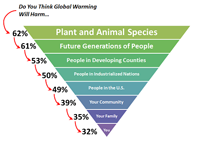 |
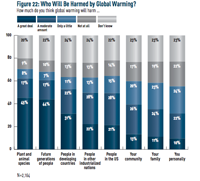 |
| 538.com’s “Environmental Inverted Pyramid“ | Climate Change In The American Mind’s results about perceptions of harm. |
When the data is proportionately displayed, the inverted pyramid still exists, but does not as impressively support Silver’s argument that Americans are concerned “only in the abstract”:
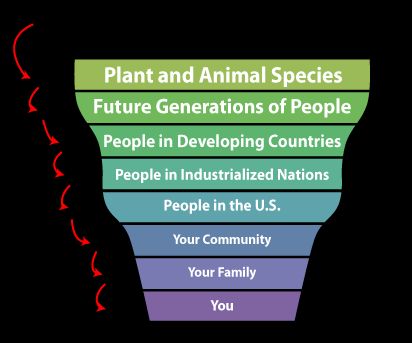
Of course, the essential matter is that the American public’s perception of the threat of climate change, after decades of deliberate disinformation from corporate polluters, is disconnected from reality. As the U.S. Environmental Protection Agency related in its greenhouse gas endangerment finding this month, the harm from global warming is real and already with us, here in the United States:
The Administrator concludes that, in the circumstances presented here, the case for finding that greenhouse gases in the atmosphere endanger public health and welfare is compelling and, indeed, overwhelming. The scientific evidence described here is the product of decades of research by thousands of scientists from the U.S. and around the world. The evidence points ineluctably to the conclusion that climate change is upon us as a result of greenhouse gas emissions, that climatic changes are already occurring that harm our health and welfare, and that the effects will only worsen over time in the absence of regulatory action. The effects of climate change on public health include sickness and death. It is hard to imagine any understanding of public health that would exclude these consequences. The effects on welfare embrace every category of effect described in the Clean Air Act’s definition of “welfare” and, more broadly, virtually every facet of the living world around us.

